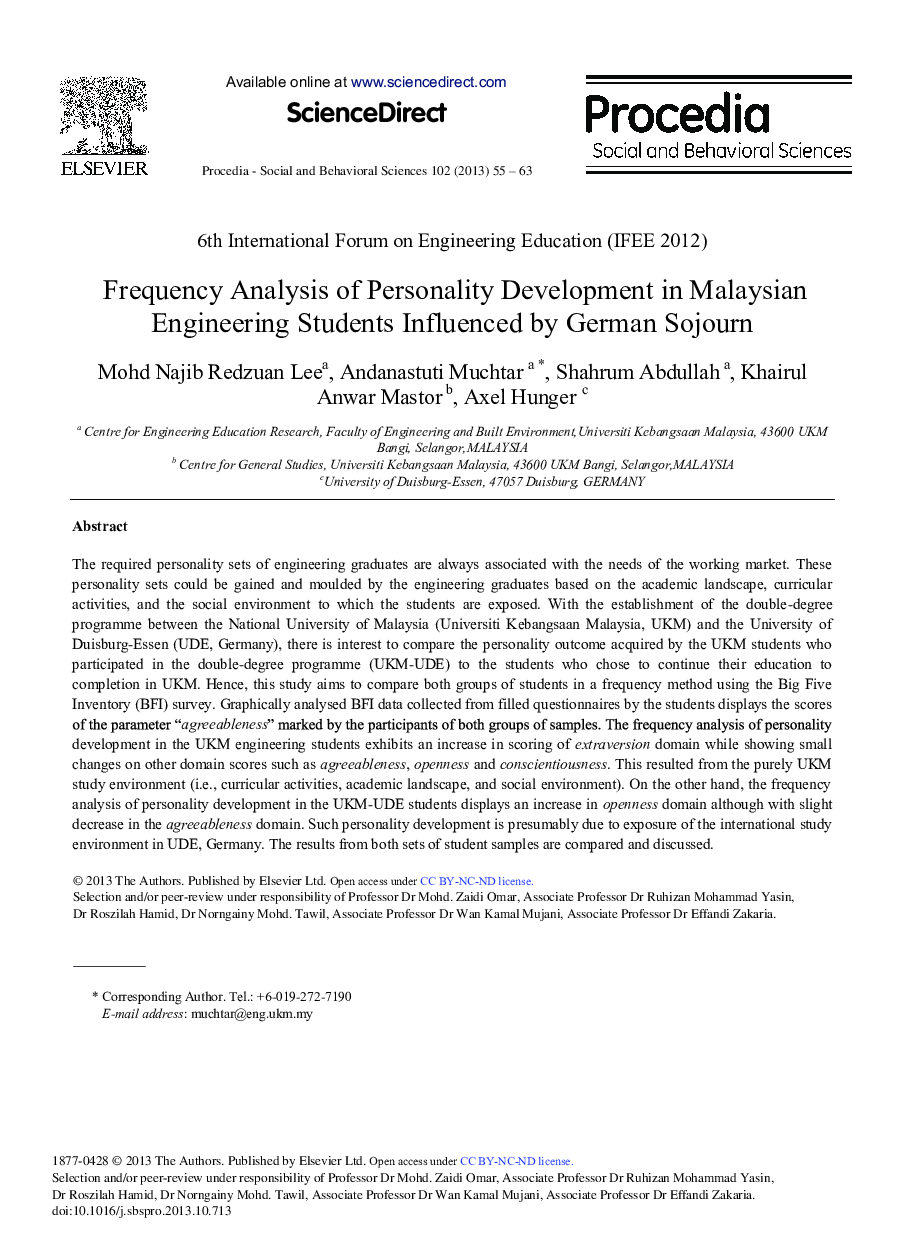| Article ID | Journal | Published Year | Pages | File Type |
|---|---|---|---|---|
| 1114957 | Procedia - Social and Behavioral Sciences | 2013 | 9 Pages |
The required personality sets of engineering graduates are always associated with the needs of the working market. These personality sets could be gained and moulded by the engineering graduates based on the academic landscape, curricular activities, and the social environment to which the students are exposed. With the establishment of the double-degree programme between the National University of Malaysia (Universiti Kebangsaan Malaysia, UKM) and the University of Duisburg-Essen (UDE, Germany), there is interest to compare the personality outcome acquired by the UKM students who participated in the double-degree programme (UKM-UDE) to the students who chose to continue their education to completion in UKM. Hence, this study aims to compare both groups of students in a frequency method using the Big Five Inventory (BFI) survey. Graphically analysed BFI data collected from filled questionnaires by the students displays the scores of the parameter “agreeableness” marked by the participants of both groups of samples. The frequency analysis of personality development in the UKM engineering students exhibits an increase in scoring of extraversion domain while showing small changes on other domain scores such as agreeableness, openness and conscientiousness. This resulted from the purely UKM study environment (i.e., curricular activities, academic landscape, and social environment). On the other hand, the frequency analysis of personality development in the UKM-UDE students displays an increase in openness domain although with slight decrease in the agreeableness domain. Such personality development is presumably due to exposure of the international study environment in UDE, Germany. The results from both sets of student samples are compared and discussed.
